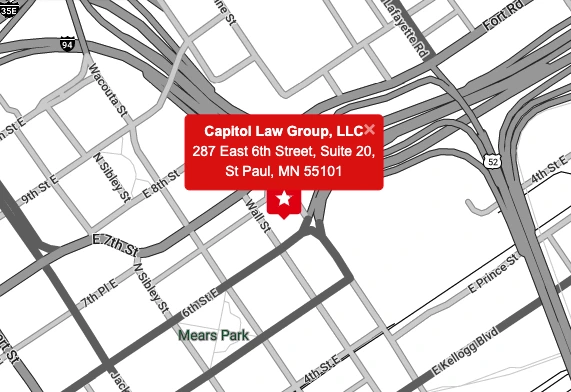Can Drug Crime Lawyers in St. Paul Beat Drug Possession Charges?

A sound approach to drug possession defenses is essential, because these cases are quite common. In fact, over 85 percent of all criminal drug matters are possession cases.
Many police officers mistakenly believe that drug possession cases are easy to prove in court. That’s one reason the number of drug possession arrests is so high. Additionally, many police officers take illegal shortcuts during the pre-arrest process.
Because of these issues, which are examined below, a St. Paul drug crime lawyer has an excellent chance to successfully resolve these cases. This resolution could be a pretrial diversion or another program which results in no crminal conviction. In other cases, the evidence may be so weak, or the procedural errors so gave, that a Ramsey County judge may throw the case out of court. Most drug possession cases involve motor vehicles, so this post will focus on such incidents.
Lack of Reasonable Suspicion
Before they can detain motorists, police officers must possess specific, articulable facts which indicate criminal activity. Many times, reasonable suspicion is a traffic violation committed within the officer’s view. Any violation will do, including an expired sticker or a license plate frame which partially obscures the numbers on the plate. And, the evidentiary standard is very low. “Reasonable suspicion” is basically an evidence-based hunch. Nevertheless, a drug crime lawyer in St. Paul can sometimes challenge arrests on this point.
Some officers rely on furtive gestures. Such movements often occur before the officer initiates a stop. Perhaps the defendant looks nervous, glancing into the rearview mirror several times. Or, perhaps the defendant makes a sudden move, as if s/he is trying to hide something. Minnesota courts have fairly consistently ruled that such gestures, by themselves, do not constitute reasonable suspicion.
Other stops hing on informer’s tips. These tips may or may not be reliable. Assume Officer Tim sees David Defendant speeding. Officer Tim radios a description of Dan’s car to Officer Sarah. Even though Officer Sarah did not see Dan speeding, she can still pull him over, based on the information provided by Officer Tim.
Now assume Officer Tim receives an anonymous tip that David bought drugs at a drug house. Based solely on that information, Officer Tim may lack reasonable suspicion. Anonymous tips simply are not very reliable. If the caller did not vouch for the tip, there’s no reason for a police officer or judge to give it added weight.
If Officer Tim observed anything else, even a furtive gesture, a stop is probably legal. The additional information corroborates the tip, at least a little.
St. Paul Drug Crime Lawyers and Lack of Probable Cause
To arrest someone for drug possession or any other criminal charge, police officers must have probable cause. Courts have never defined this evidentiary standard. But, it is higher than reasonable suspicion and lower than beyond a reasonable doubt, which is the standard of proof in a criminal trial.
As an example, in 2015’s United States v. Fuehrer, officers pulled over a man for traveling 1mph over the speed limit. That’s within the radar gun’s margin of error, so officers knew the charges would not hold up in court. Nevertheless, a federal judge ruled the officers had probable cause.
Probable cause disputes in drug possession cases often involve physical symptoms of drug use. For example, the signs of marijuana use include:
- Shortness of breath, vision problems, or other signs of high blood pressure or heart palpitations,
- Bloodshot eyes,
- Dry mouth,
- Slow physical reactions,
- Unusual anxiety,
- Odor of marijuana, and
- Yellow fingertips.
If a defendant only exhibits one or two of these symptoms, a St. Paul drug crime lawyer may be able to successfully argue lack of probable cause.
No Legal Possession
Let’s take the above example and change the facts a bit. Assume Debbie Defendant (no relation to Dan) is in the car’s back seat when Officer Tim pulls Dan over. Because he develops probable cause, and because of the automobile exception to the search warrant requirement, Officer Tim can search Dan’s car without a warrant. After he finds a dime bag in the glove compartment, he arrests Dan and Debbie for drug possession.
Debbie’s drug possession case may not hold up in court. Given these facts, it would be difficult for a Ramsey County prosecutor to establish all three elements of possession:
- Proximity: If Debbie was in the back seat, the glove compartment was probably beyond her immediate reach, unless she strained toward the front. That may or may not be good enough to establish legal proximity.
- Knowledge: Debbie must have known that there was marijuana in the glove compartment. Unless she saw Dan put the dime bag inside the glove compartment, this element is probably not present.
- Control: This element is related to proximity, but it is different. If the glove compartment was locked, Debbie could not have possibly controlled the marijuana, unless she had a key.
Count on a Tenacious Attorney
Drug possession cases may seem simple, but they are quite complex. For a free consultation with an experienced St. Paul drug crime lawyer, contact Capitol City Law Group, LLC. Go online now, call us at 651-705-8580, or stop by 287 6th St E, Suite 20, St Paul, MN 55101.




